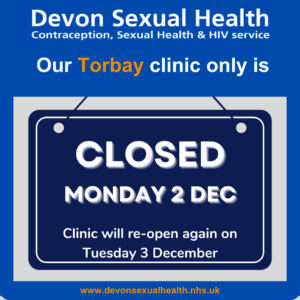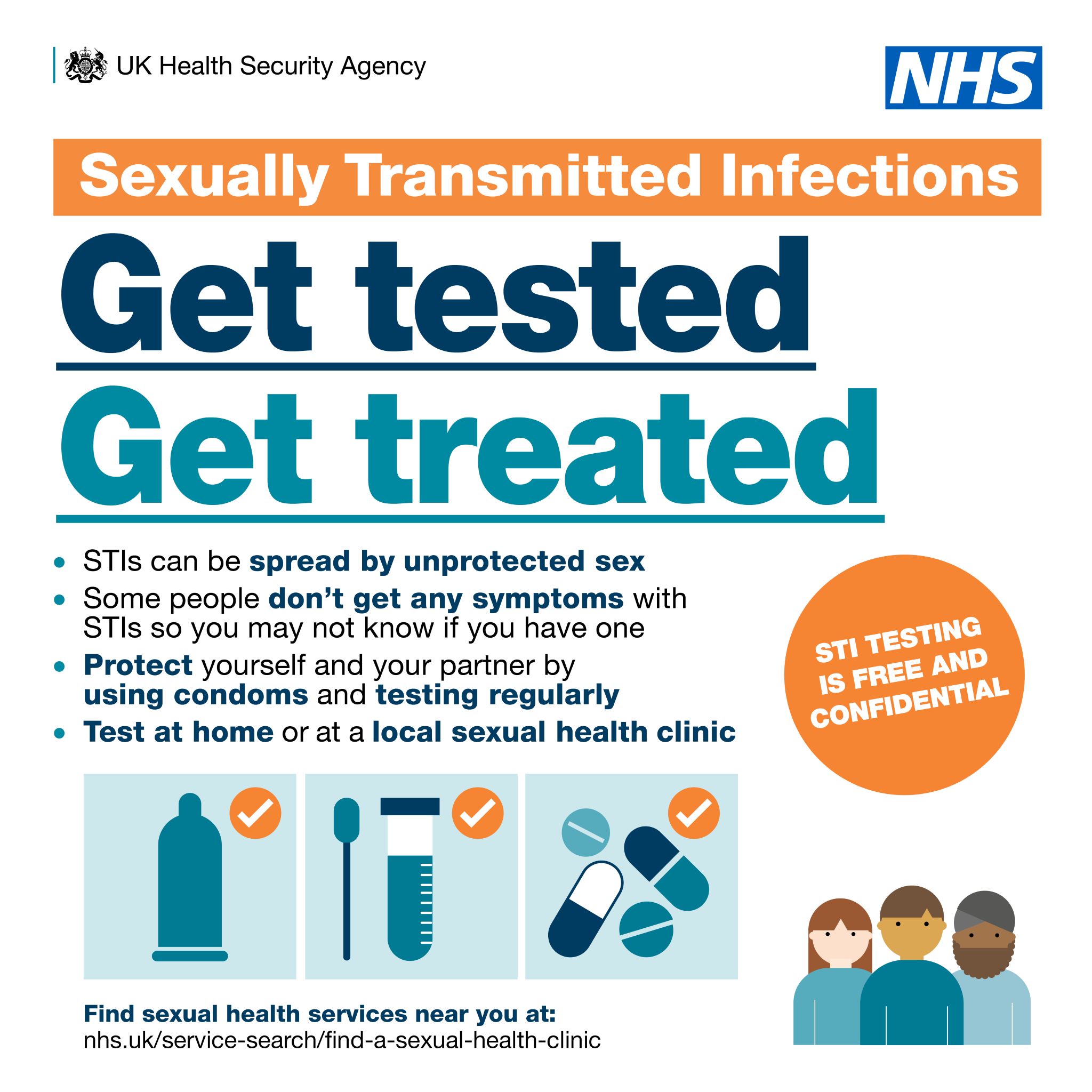5 things we wish you knew about chlamydia
posted by: Don Leslie
1. Chlamydia is more common than you’d think.
Currently around 1 in 20 young people (aged 15-24) are infected with chlamydia.
Chlamydia is the most common STI in England. 203,116 cases were seen in 2017. 57% were women.
Rates were highest among those less than 25 years of age, peaking at age 19 among women and age 20 among men.
2. Get tested regularly.
You should get tested for chlamydia every year or whenever you change sexual partner.
Only 1 in 5 young people (aged 15-24) had a test for chlamydia in Devon and Torbay last year.
Even if you feel well, you still need to get tested. Most people with chlamydia have no symptoms.
If you are under 25, you can test yourself free of charge at home through the national chlamydia screening programme.
3. Chlamydia doesn’t just infect genitals.
It can also easily infect the throat, bum and eyes! You can pick it up from all types of sexual contact including vaginal sex, oral sex, anal sex or sharing sex toys.
Condoms reduce the chance of catching chlamydia but not many people use them for oral sex. We recommend condoms for oral sex and regular testing to prevent you catching and passing on the infection.
4. Don’t treat yourself.
There have been cases of people buying antibiotics online in order to treat themselves. This is a bad idea.
Chlamydia is an infection and it needs proper diagnosis and treatment. If you come to one of our clinics we will test for other infections, talk through the condition, encourage you to think about partners and whether they need testing or treatment and ensure you receive the right antibiotics for the infection you have.
We are qualified experts who love our work and making people well. There is never any need to feel embarrassed about coming to see us
5. Tests are unreliable in the first 2 weeks.
Chlamydia tests can miss the infection if you have had it for less than 2 weeks. There is no harm in testing early but it is important to repeat tests for chlamydia 2 weeks after the last sex you were worried about.
If you have any symptoms at all that you’re worried about, no matter when they occur, come and see us in the clinic straight away.
More information and advice about chlamydia (including why the Koala).

Trending Now
- Taking ‘the pill’. A different approach to make this method work best for you
- Does contraception affect fertility?
- Does using contraception make you put on weight?
- Does it hurt to have an IUC (coil) fitted?
- Our C-Card service is changing
- Updated blood pressure readings if you are taking combined hormonal contraception
- The “male contraceptive”
- Mpox vaccines are now available
- Emergency contraception
- Using a moon cup? Read this if you also have a coil in place..

Easter opening times for sexual health clinics
Please note all sexual health clinics will be closed from Friday 18 April to Monday 21 April, and will re-open […]

Mpox vaccines are now available
From Jan 2025, Devon Sexual Health will be working with the Royal Devon University Healthcare NHS Foundation Trust’s vaccination team […]

Torbay clinic will be closed on Monday 2 December
To facilitate the implementation of a new electronic patient record system (EPR), our Torbay clinic only will be closed on […]

Rise in HIV diagnoses steepest among heterosexual men and women
The latest HIV surveillance data for 2023, published by the UK Health Security Agency (UKHSA) today, show that the number […]
